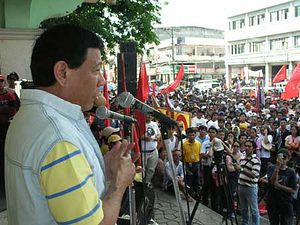During the past year, the provinces of Negros Occidental and Negros Oriental consistently made headlines in the Philippines for shocking episodes of violence against farmers, activists, lawyers, and politicians alike. Among the victims of these incidents were 14 farmers and activists in Canlaon City, Negros Oriental, who were killed for allegedly resisting arrest.Five months earlier in Bulanon, Sagay City, Negros Occidental, 9 farmers, members of the National Federation of Sugarcane Workers, were killed following a harvest.
Lumping these and other killings together risks eliding the circumstances behind each incident. Nevertheless, it is necessary to consider the context of this violence, specifically the acute anxiety surrounding Negros’ all-important sugar industry. The fortunes of this industry, already plagued by inchoate land reform and unfair labor practices, are inextricable from the decades-old conflicts between laborers, landlords, paramilitaries, soldiers, and insurgents. As the government contemplates liberalizing the sugar industry, it is necessary to consider the common conditions that lead to conflict in Negros to determine the impact of proposed trade reforms on the provinces’ security.
The exploitation of farmers and plantation workers remains commonplace throughout the Philippines, but Negros is infamous for its “feudal” relations between landlords and tenants. The Department of Labor and Employment reports the real minimum wage for agricultural worker as 244.81 Philippine pesos ($4.69) in Negros Occidental and 300.16 Philippine pesos in Negros Oriental. Local labor organizations and militant groups protest that the minimum wage insufficient, and its enforcement is evaded by employers through contract labor or “pakyawan.” Critics observe that predatory contracting, which the Duterte administration pledged to eradicate, persists under toothless regulations. Unyon ng Manggagawa sa Agrikultura reports that laborers actually receive around 100 Philippine pesos in the peak season, and even less during tiempo muerto, the dead season.
Under these desperate circumstances, laborers supplement their income through bungkalan, the tilling of fallow land, with or without the approval of the landowner, for short-term crops in between the seasons for cash crop cultivation. On the sugar plantations of Negros, bungkalan is essential to the livelihood of cane workers during tiempo muerto. Landowners, however, view bungkalan as a violation of their property rights since crops are cultivated on their land without their permission or compensation. Conflict between laborers and landholders over bungkalan can escalate to the point of violence, resulting in incidents including the Sagay Massacre.
The government has been less than sympathetic to impoverished cane cutters facing the threat of starvation or landlord violence. In response to the Sagay Massacre, President Rodrigo Duterte argued that the bungkalan laborers were communist militants attempting to illegally occupy private land, and issued the following instructions: “My orders to the police and the soldiers, shoot them. If they resist violently, shoot them. If they die, I do not care.”
Nevertheless, Duterte continues to portray himself as an advocate for farmers through the pursuit of land reform. According to the Department of Agrarian Reform (DAR), approximately 600,000 hectares of land remain to be distributed nationwide. As of December 2018, 125,000 hectares in Negros Occidental have yet to be distributed, making the province the site of the largest distribution backlog in the country. Meanwhile, landowners evade the mandated distribution of their lands by parceling their holdings to handpicked former tenants, which effectively pits the newly landed smallholders against landless workers, stoking mutual animosity.
Frustrated by the slow dispersal of land, Duterte attempted to work around the intransigence of large landowners through the issuance of Executive Order 75, which calls for the identification of public lands for distribution. Duterte also pushed DAR to simplify the process for land conversion from agrarian to commercial, industrial, or residential use.
Applications for land conversion will be approved or denied after 30 days, whereas it previously took 120 days. DAR stated that the expedited timeframe will ease bureaucratic burdens on small-scale landholders who want to convert their land. Opponents of land conversion, to include former agrarian reform secretary Rafael Mariano, defended the lengthier approval process, charging that the fast track will favor land developers with connections to the president at the expense of farmers and local food security.
This is the context in which the proposal to liberalize the sugar industry must be understood, although it is also part of a broader trend in the Philippines to fight rising commodities prices through reducing protective tariffs, following the controversial 2019 Rice Tarrification Law. As the Department of Agriculture and the Department of Trade and Industry examine the role of traders in rising sugar prices despite stable milling fees and expenses, members of the Sugar Regulatory Administration have stated their suspicion that traders are raising prices to induce market liberalization.
The government defends liberalizing the sugar industry by arguing that lower sugar prices resulting from international competition will benefit consumers, but commodities traders and confectionary industries also stand to profit considerably from liberalization. By removing industry protections, Philippine sugar producers claim that revenues lost to Southeast Asian producers will force plantations to lay off workers while smaller farms will be forced to close; a situation that recalls the sugar market crash of the 1980s, and the violence that followed.
Looking to the future prosperity and security of Negros Occidental and Oriental, the memory of the poverty and unrest of the 1980’s looms large. Operating in the aforementioned context of rural deprivations and emerging anxieties, the communist insurgent New People’s Army maintains commands throughout the Philippines, with its Negros cadres taking advantage of present unrest to perpetrate guerrilla war and attract local support.
While DAR seeks to insulate smallholders economically by identifying public lands for redistribution and encouraging crop diversification, piecemeal reforms will not save an entire industry and the livelihoods, however meager, it sustains. If proactive policies are not pursued to fully implement land reform, enforce fair labor practices, and blunt the negative externalities liberalizing the sugar industry, Negros’s future will likely echo its bloody past, despite the growing presence of Philippine soldiers charged with keeping the peace.
Luke Lischin is an assistant research fellow at the National War College.
































